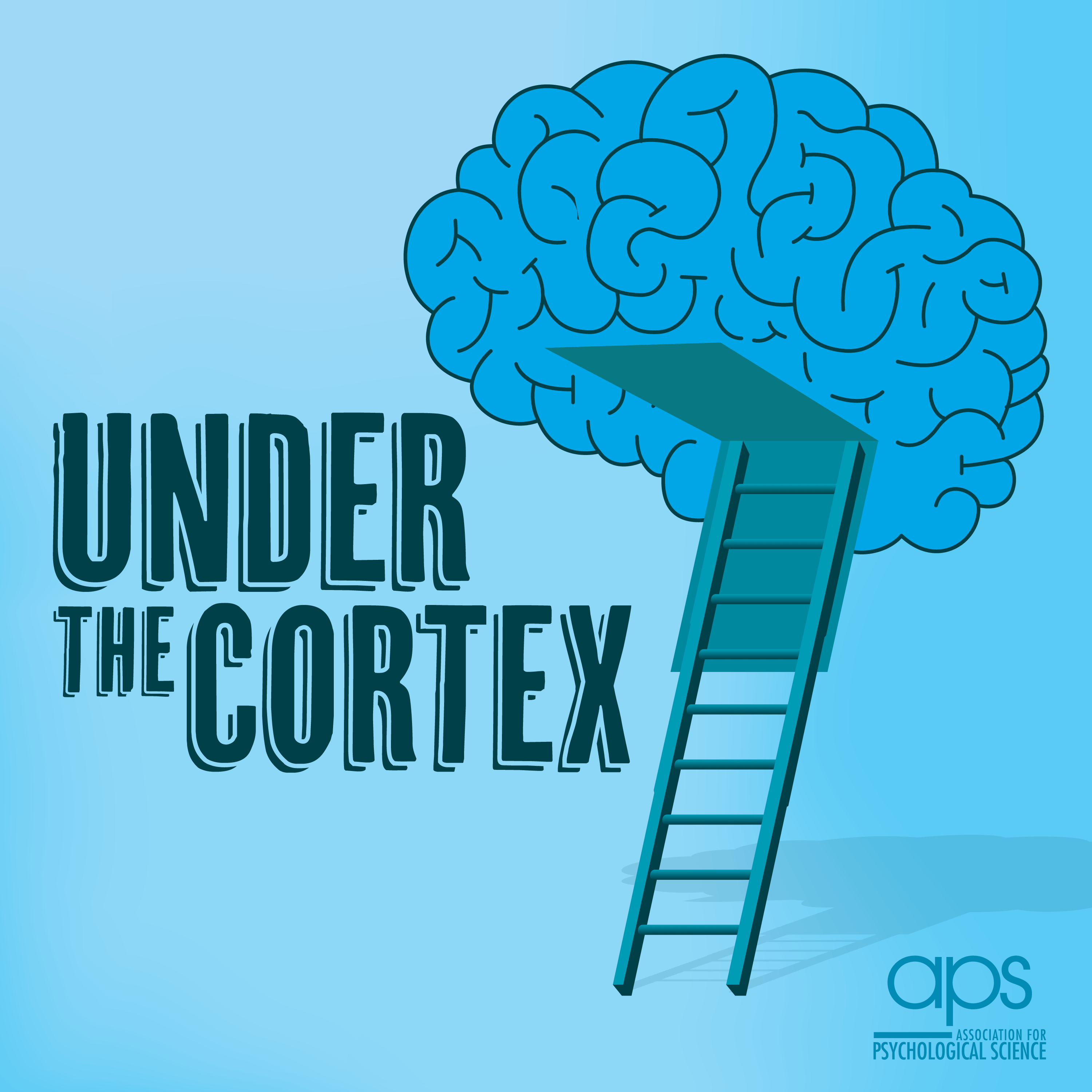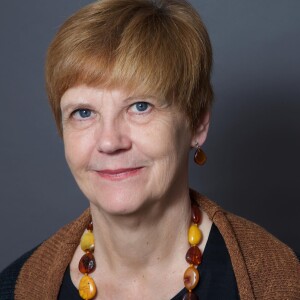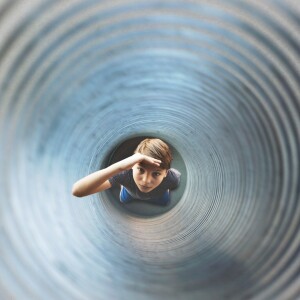
235.6K
Downloads
152
Episodes
The podcast of the Association for Psychological Science. What does science tell us about the way we think, behave, and learn about the world around us? Under the Cortex is proudly sponsored by Macmillan Learning Psychology, where captivating content meets genuine engagement. Our authors, who are seasoned educators, understand today’s teaching challenges. We aim to craft and present both information and interactive tools that truly connect with students. Whether in-person or online, we support instructors and inspire students. Macmillan Learning Psychology: Engaging Every Student, Supporting Every Instructor, Setting New Standards for Teaching and Learning.
The podcast of the Association for Psychological Science. What does science tell us about the way we think, behave, and learn about the world around us? Under the Cortex is proudly sponsored by Macmillan Learning Psychology, where captivating content meets genuine engagement. Our authors, who are seasoned educators, understand today’s teaching challenges. We aim to craft and present both information and interactive tools that truly connect with students. Whether in-person or online, we support instructors and inspire students. Macmillan Learning Psychology: Engaging Every Student, Supporting Every Instructor, Setting New Standards for Teaching and Learning.
Episodes

Thursday Apr 20, 2023
Industrialized Cheating in Academic Publishing: How to Fight “Paper Mills”
Thursday Apr 20, 2023
Thursday Apr 20, 2023
A growing problem in research and publishing involves “paper mills”: organizations that produce and sell fraudulent manuscripts that resemble legitimate research articles. This form of fraud affects the integrity of academic publishing, with repercussions for science as well as the general public. How can fake articles be detected? And how can paper mills be counteracted?
In this episode of Under the Cortex, Dorothy Bishop talks with APS’s Ludmila Nunes about the metascience of fraud detection, industrial-scale fraud and why it is urgent to tackle the fake-article factories known as “paper mills.” Bishop, a professor of neurodevelopmental psychology at Oxford University, is also known for her breakthrough research on developmental disorders affecting language and communication.
To read the transcript, see here.

Thursday Apr 06, 2023
Exploration vs. Exploitation: Adults Are Learning (Once Again) From Children
Thursday Apr 06, 2023
Thursday Apr 06, 2023
How do you balance innovation and implementation, possibility and practicality? How do you resolve the tension between the lure of the crazy new thing and the safe haven of the tried and true? In her latest presidential column for the APS Observer, APS President Alison Gopnik, who studies learning and development at the University of California, Berkeley, writes about what makes children bad at acting effectively but good at learning, exploration, and discovery and how adults—including cognitive scientists and computer scientists conducting exciting new research—may learn from them. She reads her column in this episode.

Thursday Mar 23, 2023
Lived Experiences Can Be a Strength. So Why the Bias Against “Me-Search”?
Thursday Mar 23, 2023
Thursday Mar 23, 2023
Questions often emerge when researchers tend to engage in research on topics that are personally relevant for them. For example, when someone with depression also studies it, should they disclose their personal interest? How is this type of self-relevant research—“me-search,” as it’s popularly known— perceived by the academic and scientific community?
In a recent study published in Clinical Psychological Science, researchers found that more than 50% of participants had conducted self-relevant research. Those who had not engaged in self-relevant research made more stigmatizing judgments of it and its disclosure than did those who did engage in self-relevant research. We discuss these findings and their implications with the study’s lead author, Andrew Devendorf of the University of South Florida.
To read the transcript, see here.

Thursday Mar 09, 2023
Thursday Mar 09, 2023
The APS Janet Taylor Spence Award recognizes APS members who have made transformative early career contributions to psychological science.
Award recipients reflect the best of the many new and cutting edge ideas coming from of our most creative and promising investigators who together embody the future of psychological science.
The APS 2023 Janet Taylor Spence Award for Transformative Early Career Contributions joined Ludmila Nunes to talk about their research and careers. In this episode, the second of two, Julian Jara-Ettinger, Emily Fyfe, and Calvin Lai discussed reading and sharing minds, the development of learning and its practical applications, and the importance of studying the gap between what people value (for example, racial equality) and what people do (for instance, racial discrimination) and assessing and creating better diversity training for police officers.
Read more here.

Thursday Mar 09, 2023
Thursday Mar 09, 2023
Research contributions can be transformative in various ways, such as the establishment of new approaches or paradigms within a field of psychological science, or the development or advancement of boundary-crossing research.
The APS Janet Taylor Spence Award recognizes APS members who have made transformative early career contributions to psychological science.
The APS 2023 Janet Taylor Spence Award for Transformative Early Career Contributions joined Ludmila Nunes to talk about their research and careers. In this episode, the first of two, Riana Elyse Anderson, Ed O’Brien, and Hengchen Dai discussed how to study and improve the well-being and functioning of Black families, the importance of time in how people perceive progress, and how fresh starts can feel motivating.
Read more here.

Thursday Feb 23, 2023
Is Cheating Just a Symptom (and Not the Cause) of Declining Relationships?
Thursday Feb 23, 2023
Thursday Feb 23, 2023
Does infidelity predict an unhappy relationship? Or is it the other way around? Can a relationship recover after infidelity?
In a recent study published in Psychological Science, researchers found that relationship functioning starts to decline before infidelity happens and that, in most cases, well-being did not recover in the years following the infidelity. The lead author, Olga Stavrova, a researcher and professor at Tilburg University, explains these findings and elaborates on how they can expand our knowledge about the dynamics of romantic relationships.
To read the transcript, see here.

Thursday Feb 09, 2023
Stop Oversimplifying Mental Health Diagnoses
Thursday Feb 09, 2023
Thursday Feb 09, 2023
Diagnoses often oversimplify complex mental health problems. How can researchers and practitioners avoid oversimplifications, improve research, and provide more effective and customized clinical practices?
A recent article published in Current Directions in Psychological Science presented the advantages of studying mental health problems as systems, not syndromes. The author, APS Fellow Eiko Fried, a psychologist and methodologist at Leiden University, explains this new approach to how we see and classify mental health problems and how mental-health professionals might create better tools to address early risk of certain conditions, such as depression.
To read the transcript, see here.

Thursday Jan 26, 2023
A Very Human Answer to One of AI’s Deepest Dilemmas
Thursday Jan 26, 2023
Thursday Jan 26, 2023
Imagine that we designed a fully intelligent, autonomous robot that acted on the world to accomplish its goals. How could we make sure that it would want the same things we do? In her latest presidential column for the APS Observer, APS President Alison Gopnik, who studies learning and development at the University of California, Berkeley, writes about how looking at caregivers who raise human children—the parents and grandparents, babysitters and preschool teachers—might help to make sure that robot’s goals align with human goals. She reads her column in this episode.

Thursday Jan 12, 2023
Top 10 Articles of 2022: Opinionated Fetuses! Cheating Spouses! And Much More
Thursday Jan 12, 2023
Thursday Jan 12, 2023
Do fetuses care about what their mothers eat? When do spouses cheat? Does the use of social media predict depression and anxiety? How can we understand and address older adults’ loneliness? Some of the top articles published in the APS journals in 2022 explored these questions and much more. In this conversation, Ludmila Nunes talks with Amy Drew, who heads up APS’s journals team, for a countdown of the most impactful articles published in 2022.

Thursday Dec 15, 2022
What You Know Changes What and How You See
Thursday Dec 15, 2022
Thursday Dec 15, 2022
Can what we know about an object change the way we see it? Or the way we feel about it? If so, could that be because different brain areas process different features of any given object, such as what we know about its uses?
In this episode of Under the Cortex, APS’s Ludmila Nunes speaks with Dick Dubbelde, a recent postdoc and adjunct professor of psychology and neuroscience at George Washington University, about how quickly and how well we process different objects. “In an environment such as surgery, where small spatial details are super important, or in an environment like driving, where reaction time is super important, those little differences can add up, especially at the societal scale,” Dubbelde explains. He explores this research more fully in an article he coauthored with Sarah Shomstein in Psychological Science: “Mugs and Plants: Object Semantic Knowledge Alters Perceptual Processing With Behavioral Ramifications.”
